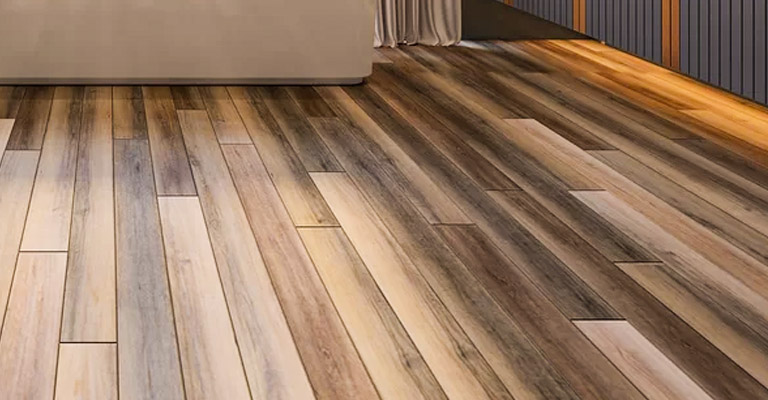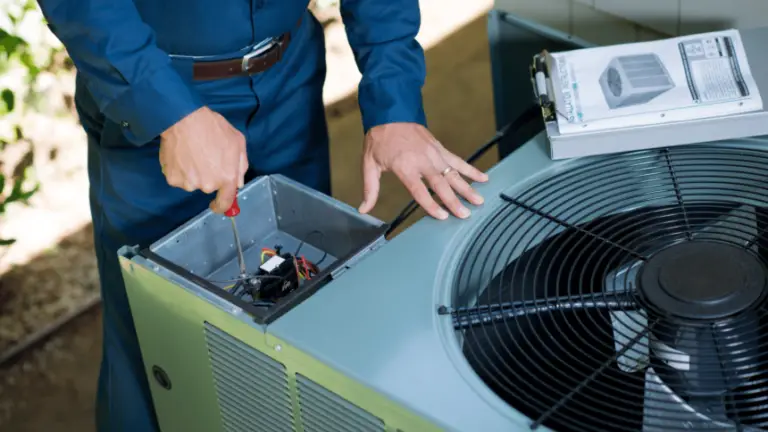Can You Screw Into Concrete Without Drilling?
It is hard to screw into concrete without drilling. The threading on the screw allows it to grip into the material being used.
It’s not just because different materials and structures are involved in concrete but also because the drill will help you create a better hole for your screws.
What if you want to screw into concrete the same way? Can you screw into concrete without drilling?
This is a question that many people ask themselves. Unfortunately, the answer is yes, but not without some difficulty.
The right drill, screw, and technique are all needed for putting screws in concrete. The only screws that can penetrate concrete are concrete screws.
A variety of sizes are available, so it’s a good idea to keep a few on hand. In order to install a screw in concrete, you will need one that can penetrate 1 inch (2.5 centimeters) into it.
Make sure the screw is embedded strongly enough by adding an additional inch (2.5 centimeters) more than the thickness of the material you are attaching to the concrete.
What Are Concrete Screws?
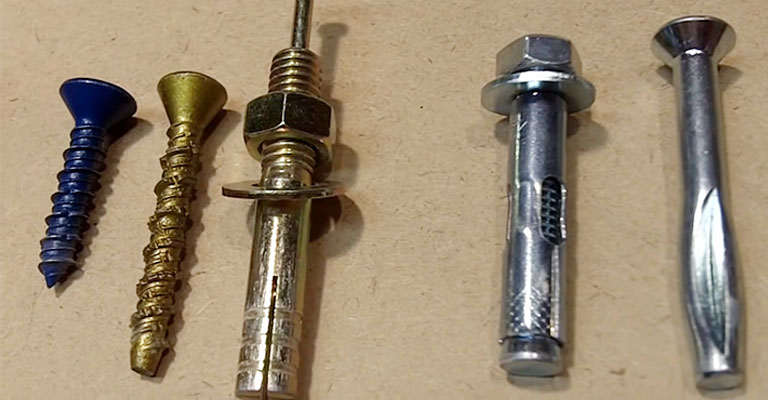
Using concrete screws, you can attach items to concrete quickly, easily, and quite strongly. It doesn’t require any hammering, anchoring, or shielding.
The screw is simply driven into the hole after the hole is drilled. It’s that simple. There is no need to blow out the hole. Known as Tapcon screws, concrete screws have high–low threads that bite tightly into the sides of holes.
To prevent bottoming out when you put the screw in, make sure you use the drill bit recommended by the screw manufacturer and bore the hole about 1/4 inch deeper than the screw length.
In addition to 3/16-inch and 1/4-inch diameters, concrete screws come in lengths of up to 3-3/4 inches. In addition to hex-heads, Phillips-heads are also available. These can be used in concrete, concrete blocks, and bricks. 100-count boxes of 134-inch screws will cost you about $15.
Can You Screw Directly Into Concrete?
A concrete screw is a convenient and quick method of fastening concrete. Unlike anchors and shields, these screws can be screwed directly into concrete without hammering or anchoring. The only thing you need to do is drill a hole and screw the screw in.
Concrete screws can sometimes be difficult to install. You might not have a deep enough hole or too much dirt in the hole if you are having trouble driving the screw in. It may be necessary to put a plastic anchor in the hole and drive the screw directly into the anchor if the screw spins without grip.
When driving the screw in, align the screw first and then use constant low-to-medium pressure on the drill. It is highly recommended that you do not drive in the screw at high speed since this can damage the threads and lead to the screw head breaking.
Is It Possible To Drill Into Concrete With A Regular Drill?
The drill that you use to drill into concrete can be any ordinary rotary drill. However, drilling into concrete with rotary drills usually takes longer and requires more physical effort than drilling with hammer drills.
Is It Possible To Use Self-Drilling Screws On Concrete?
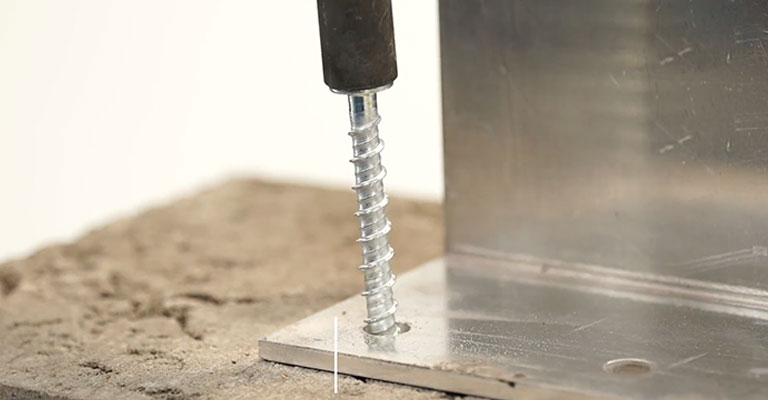
Concrete screws that self-drill tap threads into concrete are the only screws strong enough to penetrate the concrete. It is a good idea to have a variety of sizes on hand since they come in different lengths.
Is It Possible To Drill Into Concrete Without A Hammer Drill?
Hammer drills are specifically designed for driving masonry drill bits into concrete without overheating the motor or requiring several drill bits. In the event you do not own a hammer drill, you can still use the regular drill to complete your projects.
Although it is difficult to compare it with the hammer drill’s effectiveness when drilling into concrete, the regular drill can still handle the job. Your regular drill can be used for concrete drilling if you combine it with the right set of masonry drill bits, a few nails, and a little time and effort.
What Are Concrete Screws Called?
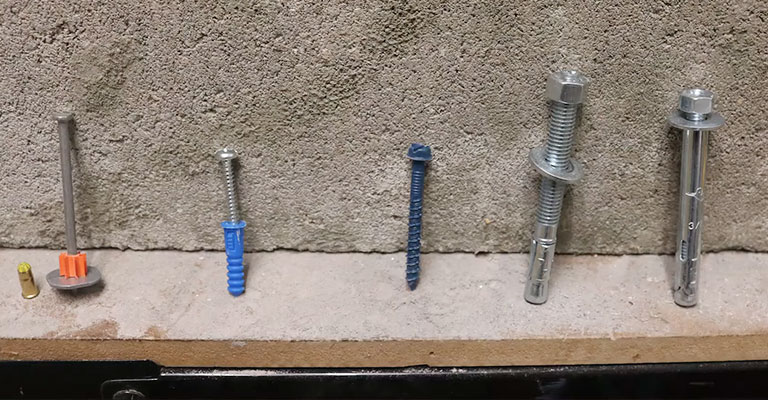
Concrete screws are sometimes called concrete anchors or fasteners. Screw heads can also be classified based on whether they are hex-heads or flat-head Phillips screws. Sometimes you might not need anchors while drilling.
Is A Pilot Hole Required For Concrete Screws?
For concrete screws, a pilot hole must be made. To ensure that dust does not accumulate as the concrete screws cut threads, you should drill your drill hole a little deeper than necessary.
A Pro Tip: Buy Different Lengths Of Concrete Screws
Be sure to purchase different lengths so that you always have the right screw size on hand. You should choose a screw length that penetrates at least 1 inch into the concrete. The minimum length of screw you need is one inch longer than the thickness of the material you are attaching.
This minimum 1-inch screw embedment will work in hard, dense materials like concrete or stone. In soft brick or other less dense materials, longer screws are recommended, up to 1-3/4 inches embedment.
In order to find a screw that can be driven fully and holds tightly, you may need to experiment with a few different lengths.
Blue concrete screws can be found in home centers, hardware stores, and lumberyards, or you can order them online or over the phone. There are several lengths of screws available in packages of 8 and 25 and boxes of 100.
If you buy more, the price will be lower. It is common to find drill bits in boxes of 25 or more. When you work on a lot of projects, you should keep some screws on hand.
Final Words
When using concrete screws, it is important to know how to drill the hole and is it safe to drill on the particular spot. Because dust accumulates inside drill holes, you should allow for a little extra depth.
You can adjust the depth of the hole with a hammer drill so that the hole won’t be too shallow or too deep. In a nutshell, you can screw it directly onto concrete, but it will be too troublesome. So, it is better to drill a hole first.




